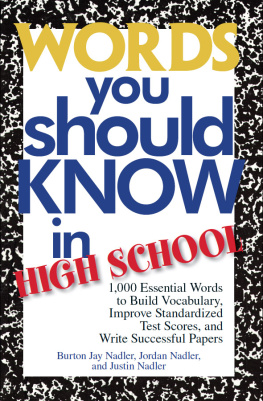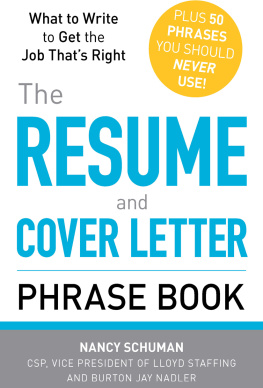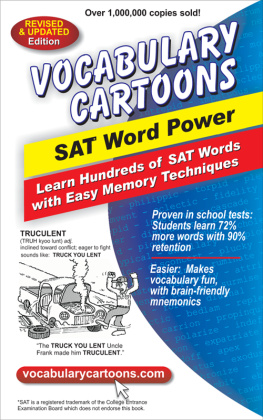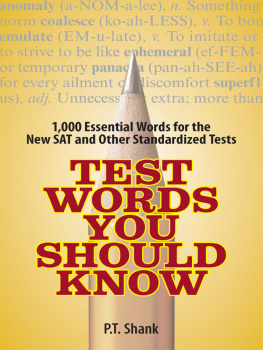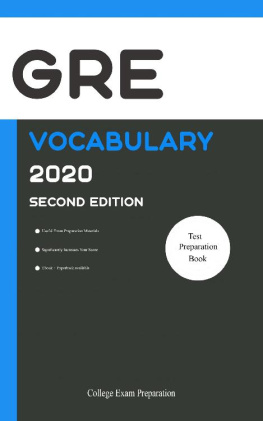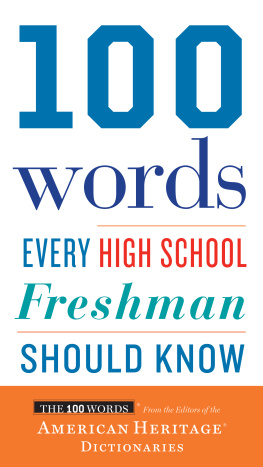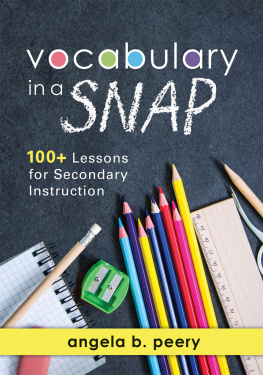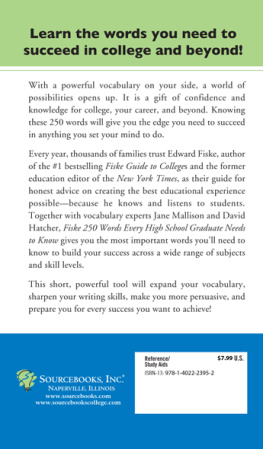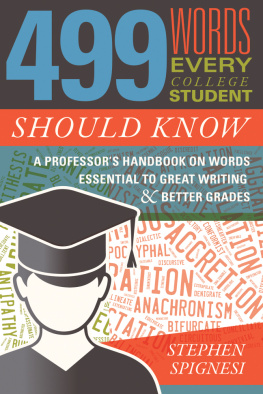Thank you! These two special words must be offered to Liz Runco, whose efforts made much of this book possible. Also, thanks to the authors and editors of the many, many reference books and online resources now available to inspire and support writers, students, teachers, and authors. As we developed this work, we referred to and learned much from these wonderful tools. We hope readers use them regularly and enthusiastically as well.
Introduction
Theodore Geisel, best known as Dr. Seuss, wrote The Cat in the Hatafter an editor challenged him to write a book that would use 250 of the 400 words that beginning readers should know. Well, the good doctor came very close, using 220. Later, the publisher Bennett Cerf bet Geisel $50 that he couldn't write a book using only fifty words. He could!You know the children's favorite that resulted as Green Eggs and Ham.The $50 bet ultimately yielded the author thousands and thousands of dollars in royalties. Using words well does pay off!
Words You Should Know in High Schoolhas some rhyming words, should be fun and funny, and does meet a challenge, but it wasn't written to win any money (a rhyming sentence homage to Dr. S). It is a user-friendly reference guide written by Burton J. Nadler in collaboration with his two children, Justin and Jordan, who are in high school and college. In this book, you'll find more than 1,000 handy words and definitions that high school students of all levels should know. Each entry features a word, its definition, and an example of that word in a sentence. In much of its format, this book follows the example of two previous titles also published by Adams Media: The Words You Should Knowby David Olsen, and More Words You Should Knowby Michelle Bevilacqua.
A few things make this book different and just right for someone in high school. First of all, the language here is tailored for teens, and the book is intended to be informative, pithy, and fun to read. The varied perspectives of the collaborators who created it should also maximize this book's credibility and help readers relate to its honest, friendly, and confident voices. The book presents the views of Justin, a high school student who is judged every day on the words he uses, and Jordan, a college student, who can attest to how crucial vocabulary is when seeking admissions to college and when seeking to succeed in academics and more.
If you're reading Words You Should Know in High School,you are most likely a high school student interested in improving your vocabulary to get ahead. You're probably not seeking to become an etymologist, so your career aspirations haven't made you a voracious seeker of word knowledge. Okay, so thinking about writing and speaking is definitely not as much fun as catching a flick with friends. But words aren't all that bad. Really! And this book is definitely for you! You can use this book as a way to accrue a larger vocabulary, as a study aid, or as a last-minute review handbook. You can also use this book to help you write killer essays, when cramming for quizzes or exams, or to enhance scores on standardized tests such as the SAT.
Words You Should Know in High Schoolcan also be used to elicit praise from the parents of your significant other, or to wow 'em at your summer job interview. No matter what your vocabulary needs, this book can help you with the academic, social, and other milestone events you'll experience in the next few years.
The words contained in this book will help you no matter your grade or academic level. It will help you eliminate procrastination, avoid mortification, and maximize inspiration! If you don't know what any of the three suffix-sharing words in the previous sentence mean, you can look them up! As you might have guessed already, suffix, along with the other words in bold type in the last few paragraphs, are all among those defined later in this book. Don't worry if you're not sure what they all mean right now, you will know soon enough.
By using this book, you are preparing to take important next steps on your path to success. The pages that follow will expand your knowledge and help you to grow and succeed. So read on, follow the advice, and you'll be in for a treat! While you may not see it now, pieces of this book will travel with you into your college years and beyond.
Now, to tell you a little more about the authors of this cool publication, here are some brief bios:
Burt Nadler has been an Assistant Dean of the College and Director of the Career Center at University of Rochester since 1998. Within these roles he has been actively involved in the university's admissions efforts and other areas of student life. He regularly reviews and edits documents that greatly impact students in their quest for success, including resumes, cover letters, and graduate school personal statements.

